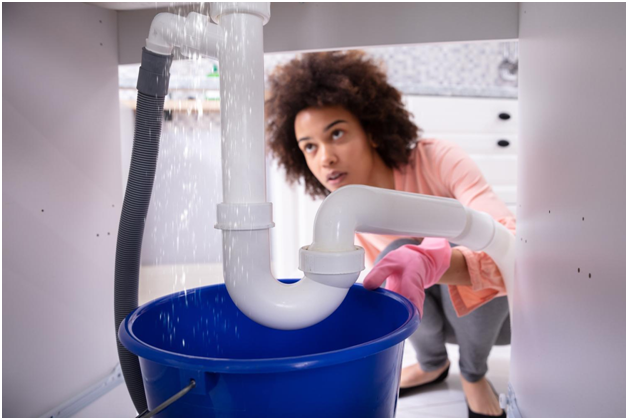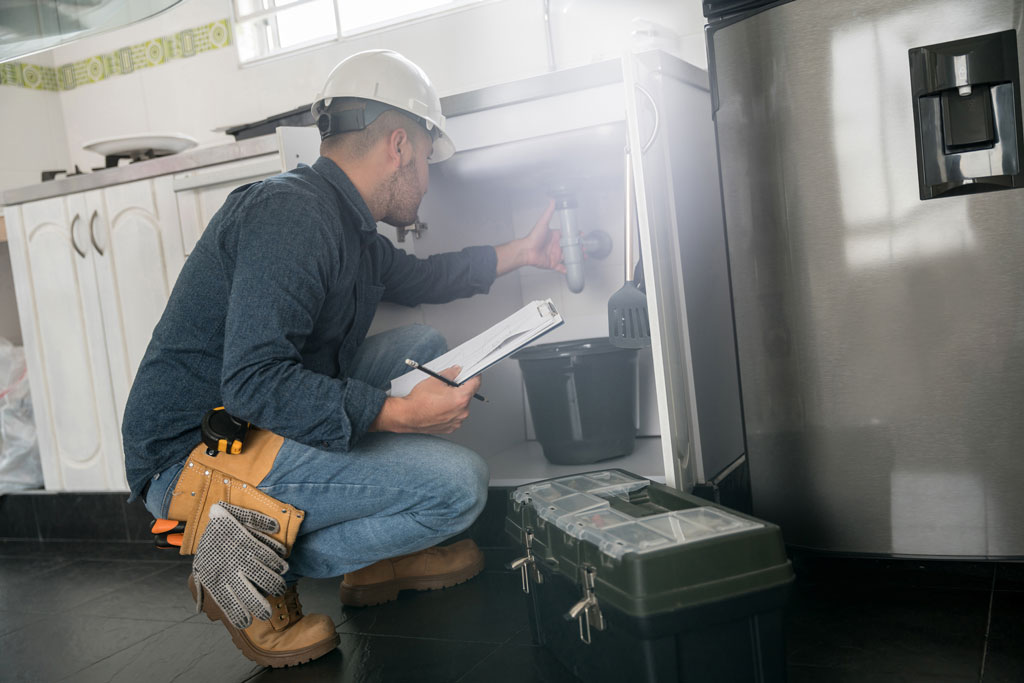Rapid Solutions for Plumbing Emergencies: What to Do Until A Plumber Arrives
Rapid Solutions for Plumbing Emergencies: What to Do Until A Plumber Arrives
Blog Article
They are making several great pointers on the subject of What to Do During a Plumbing Emergency overall in this article on the next paragraphs.

Plumbing emergencies can strike at any moment, causing stress and potential damage to your home. Whether it's a burst pipe, a blocked drainpipe, or a leaking faucet, knowing how to handle the circumstance up until an expert plumber arrives can save you from further complications. This article provides essential emergency plumbing tips to aid you mitigate damages and reclaim control throughout a pipes dilemma.
Shut off the Water System
The primary step in any type of plumbing emergency is to shut off the water supply. For local problems, such as a leaking faucet or commode, switch off the shutoff near the component. In the case of a major leakage or ruptured pipeline, find your home's main water shut-off valve and transform it off promptly. Understanding the place of these valves ahead of time can conserve useful time during an emergency.
Address Tiny Leakages with Short-term Fixes
Tiny leakages can rapidly become substantial issues if left unattended. Use these short-lived repairs until specialist aid shows up:
While these solutions aren't long-term, they can assist minimize water loss and damages.
Unclog Drains Pipes Safely
A clogged drainpipe can be a discouraging and messy issue. Below's exactly how to tackle it:
If these methods do not work, prevent using too much force, as it might intensify the obstruction.
Take Care Of Overflowing Toilets
An overflowing commode can cause instant disorder. Here's what you ought to do:
Shut down Your Water Heater
In specific emergency situations, such as a burst pipeline, it's important to shut off your hot water heater. This protects against overheating or damages to the device when water stops streaming. Switch off the power supply to the hot water heater (electric or gas) and let it cool to avoid potential dangers.
Momentarily Stop a Burst Pipe
A ruptured pipeline can lead to considerable water damages in mins. To mitigate the issue:
Call a specialist plumber right away to attend to the trouble permanently.
Manage Frozen Water Lines Meticulously
In cooler environments, frozen pipes are a common emergency. If you think a frozen pipe:
Avoid Further Damages
Taking fast activity to lessen damages can save you time and money in the long run. Below's just how:
. Have an Emergency Pipes Set
Prepare a fundamental plumbing emergency package to manage minor issues properly. Your package ought to include:
Having these tools accessible can make a considerable difference in your capacity to handle emergencies.
Know When to Call a Specialist.
While quick fixes can assist temporarily, particular pipes issues call for instant professional focus. Call a plumbing technician if:.
Without delay calling a professional makes sure the concern is fixed appropriately and prevents more complications.
Verdict.
Plumbing emergency situations can be overwhelming, however with the right understanding and devices, you can handle the scenario efficiently till help shows up. By turning off the water system, resolving little leakages, and using momentary solutions, you can reduce damages and keep your home safe. Keep in mind, these pointers are temporary options; constantly speak with an accredited plumber to deal with the origin of the problem. Preparation and fast reasoning are your best allies in any type of pipes emergency situation.
8 Helpful Tips for Managing Plumbing Emergencies at Home
If your plumbing system hasn’t failed once, wait for it because almost everyone has a story to tell. Sometimes, it could be simple emergencies such as a leaking pipe, a blocked cistern, or even a big burst pipe. In situations like this, you need to have some handy tips to save you some money and from possible damages.
Take care of minor issues early.
Sometimes, you could have avoided an emergency by taking proactive measures while it was still early. Some major plumbing emergencies can be a result of an ignored minor issue. We recommend that you have items like plumbing tapes and other related items. A plumbing tape can allow you to manage minor leaks before the plumber arrives.
Cut off the water supply.
This tip is essential in almost any type of leakage problem. For problems like minor leakages in the toilet or kitchen, turn off the supply that takes water to the affected pipes. If the leakage is a major pipe, you must shut off the supply valve to the entire building. This will help you avoid flooding your home and neighbors if you share a flat.
Know your plumbing system
Folks typically move into a new apartment without understanding the water supply around the building. This can prove disastrous if a water emergency arises and the plumber is far away. The previous tip will prove useless if you don’t practice this one. More importantly, know where your water shut-off valve is located – you’ll need that knowledge to prevent potential home floods.
Have some common handy tools
There are lots of plumbing emergencies that you can handle without hiring a plumber. That’s why you must keep some tools available always. Some tools that you can use to fix simple plumbing emergencies easily include plumbing tapes, screwdrivers, thread seal tapes, plungers, pliers, tape measures, and rubber gloves.
Insulate your pipes from cold
You’ll save yourself from many plumbing expenses if you protect your water pipes from the cold. This is because of the harmful effects that cold weather can have on your pipes. During winter, your pipes can burst from being overly expected to freezing temperatures. So, make sure insulators are there to keep the pipes working correctly.
Avoid practices that will clog your toilet.
Many people indulge in practices that can damage the plumbing system of the entire building. One of these is when they use their toilet to dispose-off garbage. They flush all kinds of things, such as paper towels, bandages, hairs, female sanitary products, etc., down the toilet. This will block your toilet in the long run, incurring unnecessary expenditures. Dump such waste in the trash instead.
Check your dials regularly.
Sometimes, there could be leakages in your home without noticing them in time. So, constantly monitor your water meter dial. If the dial is reading when there is nobody using water, this is an indicator that there is leaking. Check for leaks immediately. Call a plumber as soon as possible if you can’t find any.
https://www.constructionplacements.com/8-helpful-tips-for-managing-plumbing-emergencies-at-home/

We were shown that report about Expert Tips for Emergency Plumbing Repairs from an associate on a different blog. Do you know about somebody who is fascinated by the topic? Why not share it. Many thanks for taking the time to read it.
Click Here Report this page